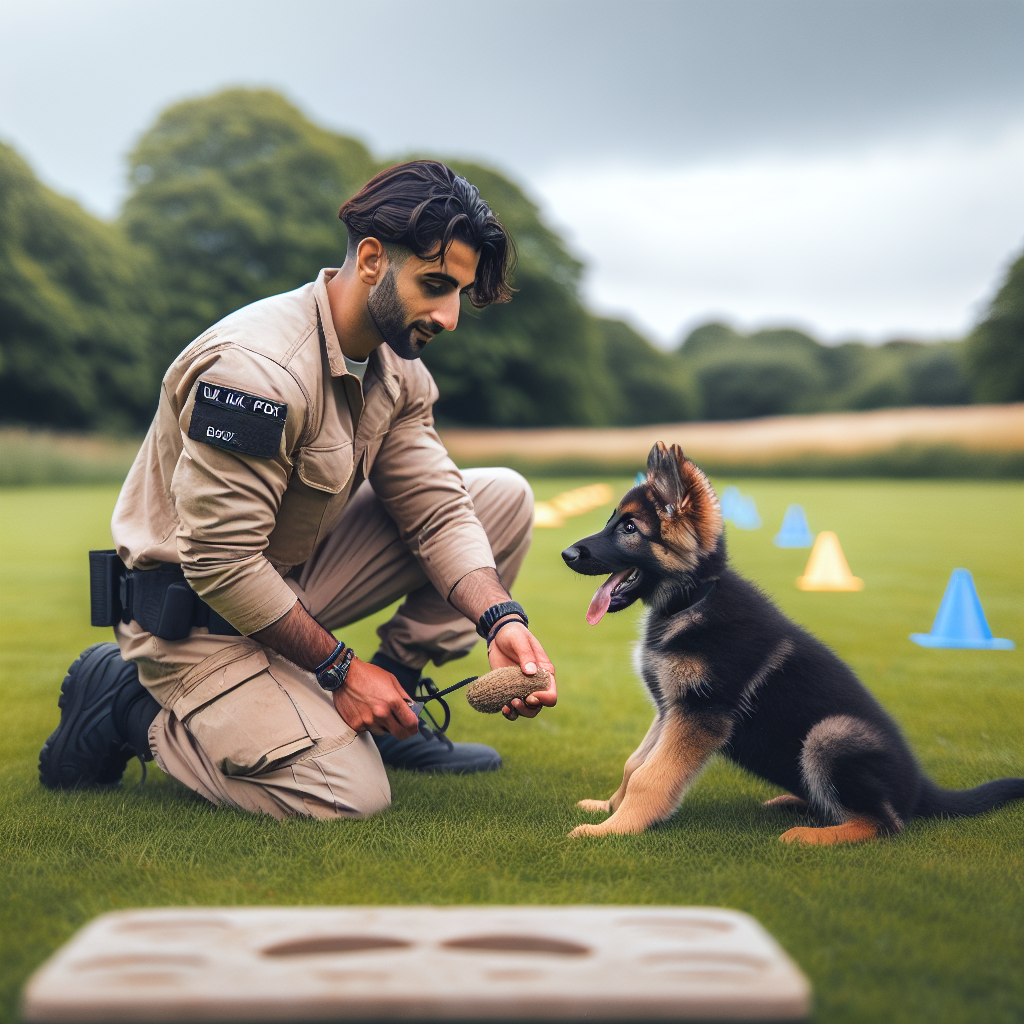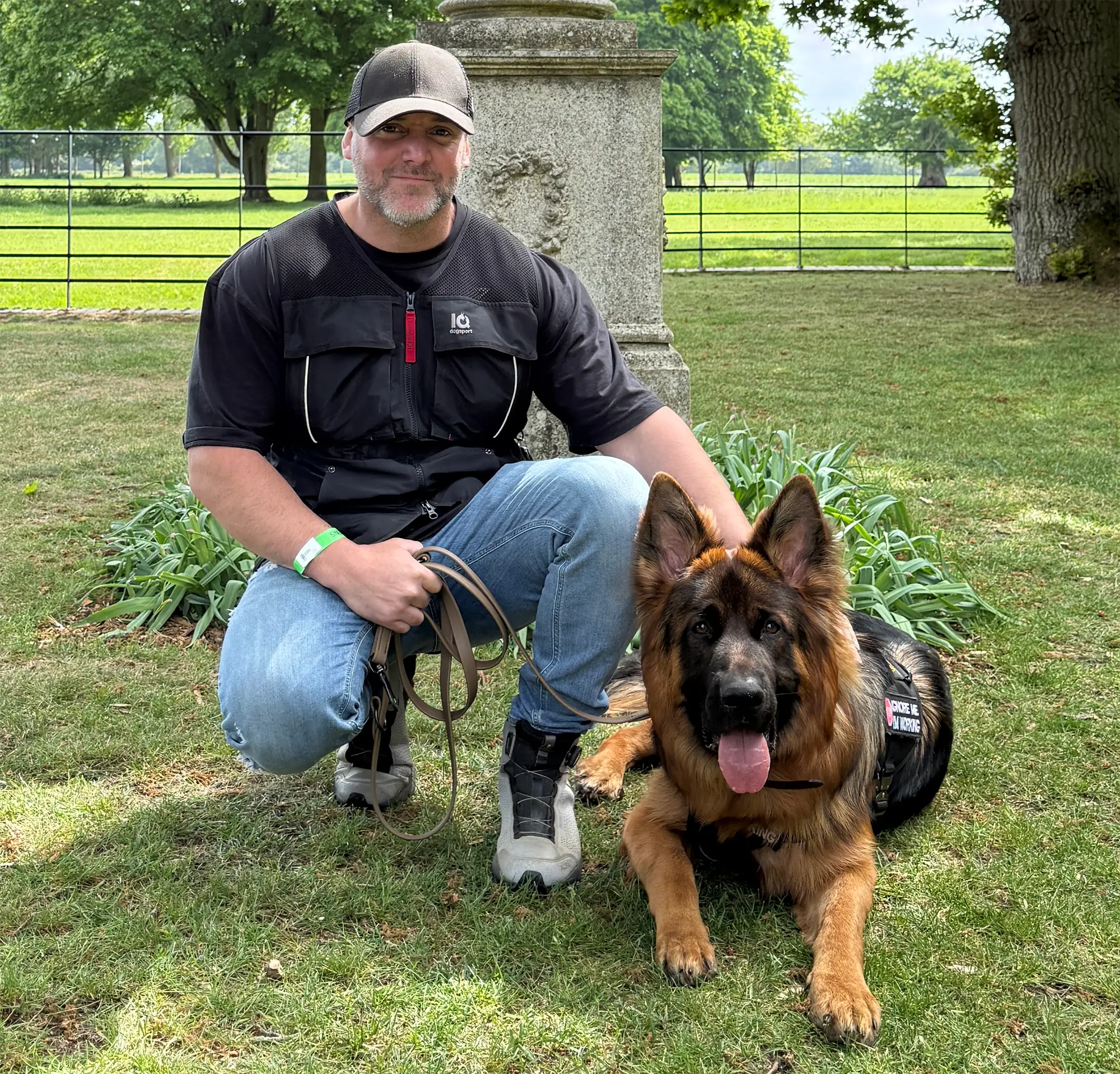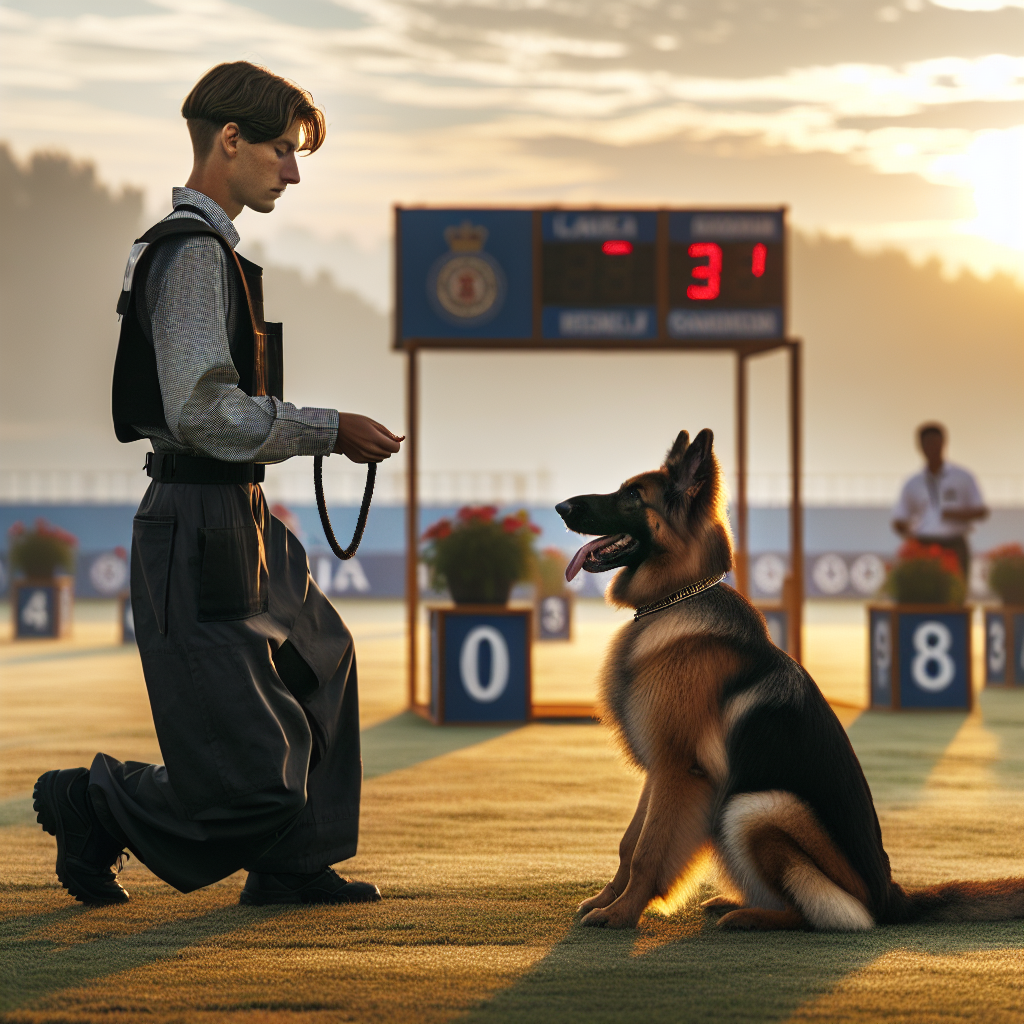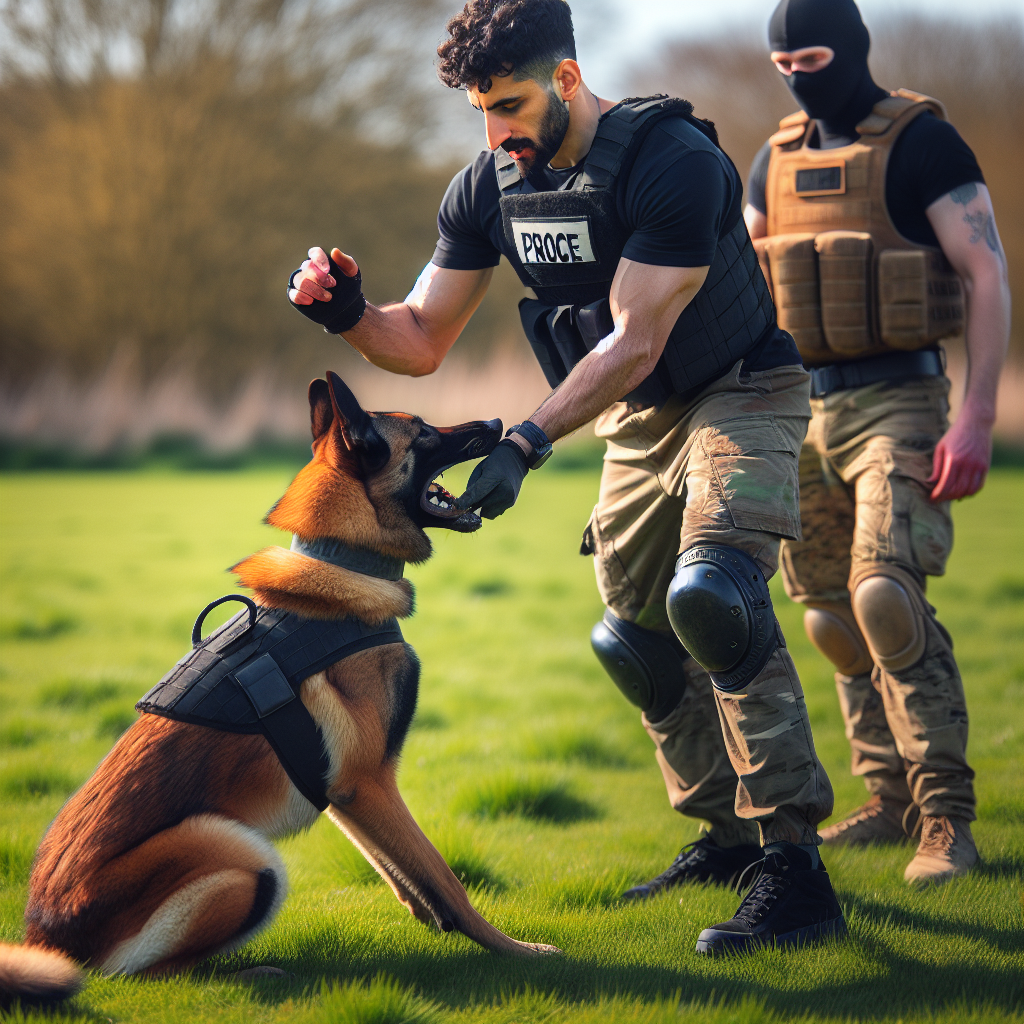Puppy Development for Future IGP

Why Puppy Development for Future IGP Starts on Day One
Puppy development for future IGP is not about rushing sport skills. It is about building the right habits, nerves, and relationship from the first day at home. The path to a balanced, powerful IGP dog starts with simple routines and clear communication. At Smart Dog Training, we use the Smart Method to shape calm, stable behaviour that can handle real life and sport pressure. A certified Smart Master Dog Trainer will guide every step so you progress with confidence and avoid common pitfalls.
IGP is a demanding sport that tests tracking, obedience, and protection. Success comes from clarity, motivation, progression, and trust. Puppy development for future IGP should always respect growth stages, joints, and learning windows. When you follow a structured plan, your puppy learns to enjoy work, recover fast from stress, and stay accountable without conflict. That is the Smart approach and it works.
The Smart Method For Puppy Development for Future IGP
Smart Dog Training builds every programme on five pillars. These pillars keep puppy development for future IGP safe, ethical, and effective.
- Clarity. We teach markers and commands with precision. The puppy always knows when they are right or when to try again.
- Pressure and Release. We add fair guidance in small steps and always show the way out. Release and reward build accountability without fear.
- Motivation. Food, play, and praise drive eager behaviour. We create a puppy that wants to work.
- Progression. We layer distractions, duration, and difficulty in a plan that fits the puppy’s stage.
- Trust. Training deepens the bond so the dog works with you, not against you.
Every part of puppy development for future IGP follows this method. Your results are calm, confident performance that holds under stress.
Key Milestones From 8 to 24 Weeks
The first months are the foundation. Puppy development for future IGP focuses on short, joyful sessions and simple structure at home. Keep it light, frequent, and fun.
Critical Socialisation Windows
Early social periods shape resilience. We pair new sights and sounds with food and play. We do not flood or force. The goal is curiosity and quick recovery. Surfaces, stairs, car rides, shops, and quiet spectators become normal. This is the path to solid nerves.
Building Nerve Strength Without Flooding
Nerve strength grows when the puppy solves small challenges. We use low pressure tasks, such as stepping on a wobble board or moving through a tunnel, then mark and reward. If the puppy hesitates, we lower difficulty and try again. Balanced pressure with clear release builds courage.
Genetics and Selection for IGP Prospects
Genetics matter. Puppy development for future IGP works best when the dog has stable temperament, recovery, and food and prey motivation. Look for:
- Curiosity and confidence in new places
- Fast recovery after startle
- Strong appetite and toy interest
- Willingness to engage with the handler
- Calmness in the home and good off switch
Smart Dog Training coaches families on selection and early testing. Structure plus the right genetics makes training smooth and fair.
Structure At Home That Builds Accountability
Home habits shape sport success. Puppy development for future IGP uses routine to reduce conflict and keep the mind clear.
- Crate training for rest and recovery
- Predictable feeding and scheduled outings
- Leash on in the home to prevent rehearsal of bad habits
- Place bed for calmness while life happens around the puppy
- Short play, short training, then rest
These habits make obedience easy later. The puppy learns impulse control and how to switch off after work.
Foundation Obedience For Future IGP Performance
Obedience should feel like a game. Puppy development for future IGP is not formal heel patterns or rigid stays. It is about clean mechanics and smart progression.
Markers and Communication
We teach a reward marker, a terminal marker, and a calm release. This gives the puppy clarity. We also add a gentle negative marker to reset without stress. Smart Dog Training uses the same language across trainers, which speeds learning for families and SMDT students.
Heelwork Foundations
We build engagement first. The puppy follows the food or toy, then learns to find position at our left leg. We reward for eye contact and straight posture in very short bursts. Early heelwork is all about joy and focus, not about patterns. Over time, the puppy carries that focus into sits, downs, recalls, and stands.
Engagement and Motivation Games
Engagement means the puppy chooses you over the environment. Puppy development for future IGP grows this through structured games:
- Chase and reward. The puppy chases the food hand or toy, then we mark and pay.
- Hand target. The puppy taps your hand, which becomes the anchor for heel starts and recalls.
- Name game. Say the name, wait for eye contact, then pay. Build this in new places.
- Out and back. Brief release to explore, then call back for a big party. Freedom exists because recall pays.
These games create a dog that stays with you when the world gets exciting.
Bite Development For Future IGP Puppies
Protection work is a sport skill that requires expert guidance. Safety and ethics come first. Puppy development for future IGP focuses on prey play, grip quality, and clean outs. We keep intensity low and avoid conflict. Only trained Smart Dog Training staff should progress beyond play to formal work.
From Prey To Possession To Out
We start with soft tugs and rags. The puppy wins often and carries the prize. We teach a confident, full bite by presenting targets cleanly and keeping the line of pull steady. The out is taught early as an exchange. We mark, trade for food, then rebite. This keeps drive high and prevents conflict over possessions. A Smart Master Dog Trainer will guide the timing so grip, rhythm, and recovery grow in balance.
Scent Work Foundations For Tracking
Tracking rewards calm focus. Puppy development for future IGP uses food drops in short, fresh tracks on simple ground. We keep the line light, allow the nose to work, and pay for accuracy over speed. Sessions stay short. As the puppy matures, we lengthen time, add corners, and reduce food. Smart Dog Training maps each step so the puppy stays confident and methodical.
Surface Confidence and Environmental Stability
IGP fields and trials bring new surfaces and stimuli. Puppy development for future IGP includes controlled exposure to metal grates, tarps, gravel, grass types, and slick floors. We pair each with food or play. If the puppy pauses, we reduce the challenge and reward small tries. Stability comes from repetition with success.
Neutrality To Dogs, People, and Distractions
Sport venues are busy. We teach neutrality so the puppy can work near pressure without reactivity. Puppy development for future IGP sets clear rules. Eyes stay on the handler for payment. Greeting is allowed only on cue. We reward the choice to ignore distractions. If the puppy struggles, we increase distance and pay for one second of focus, then build up again.
Outings and Controlled Socialisation Plans
We plan outings like training sessions. Puppy development for future IGP uses short visits to new places with a clear goal. One or two wins, then leave. Example goals include one calm pass of a pushchair, five steps on a new surface, or one recall in a quiet car park. We track progress and raise difficulty slowly. Smart Dog Training writes custom plans for each family based on the puppy’s stage.
Managing Arousal and the On and Off Switch
Drive is a tool. Control is the frame. Puppy development for future IGP builds an on switch and an off switch. We ramp up with a cue and a game. We ramp down with place bed and calm food rewards. If the puppy gets sticky in arousal, we return to simple behaviours and high rate of reinforcement. Over time the puppy learns to settle fast after work, which protects joints and mind.
Health, Conditioning, and Safe Growth
Body care is non negotiable. We protect joints and growth plates with age appropriate work. Puppy development for future IGP includes:
- Short, flat walks on varied surfaces
- Posture and core games like cookie stretches and chin target holds
- Gentle balance work on stable platforms
- Structured rest after training
- Regular checks for teeth, nails, coat, and muscle balance
We avoid repetitive jumping, sharp turns, and high impact play. Smart Dog Training coaches you on safe progress by age and breed.
Common Mistakes To Avoid In Puppy Development for Future IGP
- Over socialising without structure. Random greetings teach pulling and scanning. Keep purpose in every outing.
- Too much intensity, too soon. High arousal blocks learning and can harm joints.
- Inconsistent markers. If the language changes, clarity drops.
- Skipping foundations. Fancy skills collapse without engagement and neutrality.
- Ignoring the off switch. True balance needs rest and calm habits.
Smart Dog Training keeps you on a measured path so the puppy stays eager and healthy.
Sample Weekly Framework
Here is a simple framework you can scale by age and progress. This keeps puppy development for future IGP clear and repeatable.
- Daily engagement. Two to three micro sessions of name game, hand target, and short heeling focus.
- Two scent sessions per week. Fresh, simple tracks with food and calm handling.
- Two prey play sessions. Soft tug with clean outs and plenty of wins.
- Three neutrality walks. Short, structured walks near mild distractions. Reward eye contact and heel starts.
- Two surface exposures. New footing with food and play for confidence.
- Place training. Daily calm time in the same room as family life.
Keep each session short. End while the puppy still wants more. That way you build drive and optimism.
When To Start Formal IGP Work
Formal work begins when the puppy shows stable nerves, clean outs, and reliable engagement across environments. Puppy development for future IGP aims for readiness, not speed. With Smart Dog Training, a Smart Master Dog Trainer will assess progression and guide the timing of each step in tracking, obedience, and protection. Safety, clarity, and joy lead the way.
Ready to turn your dog’s behaviour around? Book a Free Assessment and connect with a certified Smart Master Dog Trainer - available across the UK.
How Smart Dog Training Supports Your Journey
Smart provides complete support for puppy development for future IGP. Our public programmes deliver in home coaching, structured group sessions, and tailored behaviour plans for high drive dogs. Through Smart University, aspiring trainers study the Smart Method and earn the SMDT certification with online modules, a four day workshop, and year long mentorship. Every certified trainer is part of our national network, so you receive consistent standards wherever you train.
Practical Handling Rules That Pay Off
- Set criteria before you train. Know what you will reward.
- Keep reps short. One clean rep beats ten messy ones.
- Pay the behaviour you want. Do not pay scanning or pulling.
- Protect the out. Trade early and often so release predicts another bite or game.
- Track your sessions. Note what worked and what to change.
These rules keep puppy development for future IGP clear and enjoyable for both of you.
FAQs
What age should I start puppy development for future IGP?
Start on day one. Keep sessions fun and short. Focus on engagement, socialisation with structure, and calm habits. Sport intensity can wait until nerves and body are ready.
How often should I train my puppy?
Use micro sessions of one to three minutes, several times a day. Puppies learn fastest with frequent, low stress practice and plenty of rest.
Is bite work safe for puppies?
Yes when done as prey play with soft equipment and expert guidance. Smart Dog Training keeps intensity low and teaches clean outs and possession. Formal protection work should be led by a qualified trainer.
What if my puppy shows fear in new places?
Lower the challenge and reward small tries. Build confidence step by step. Smart programmes reduce pressure, add clarity, and keep the puppy winning.
Do I need strong genetics for IGP?
Genetics help, but structure and handling matter a lot. With Smart Dog Training, many puppies grow into stable, driven dogs through a measured plan and consistent expectations.
When will my puppy be ready for trial style work?
Readiness depends on nerve, engagement, and recovery. A Smart Master Dog Trainer will assess your puppy and guide timing so progress is safe and reliable.
Can family dogs still train for IGP goals?
Yes. Puppy development for future IGP fits family life. We build a polite dog in the home and a focused athlete on the field using the same Smart Method.
How do I balance obedience and drive?
Teach drive with rules. Use clear markers, short reps, and fair pressure with release. Reward focus and clean mechanics. Obedience then fuels drive rather than fighting it.
Conclusion
Puppy development for future IGP is a journey built on clarity, motivation, progression, and trust. With Smart Dog Training, you will develop nerve strength, engagement, scent skills, clean outs, and real world stability without rushing or risking your puppy’s health. Our structured plan and nationwide support give you the roadmap and the coaching to turn your puppy into a reliable, confident sport partner and a calm companion at home.
Your dog deserves training that truly works. With certified Smart Master Dog Trainers (SMDTs) nationwide, you'll get proven results backed by the UK's most trusted dog training network. Find a Trainer Near You



